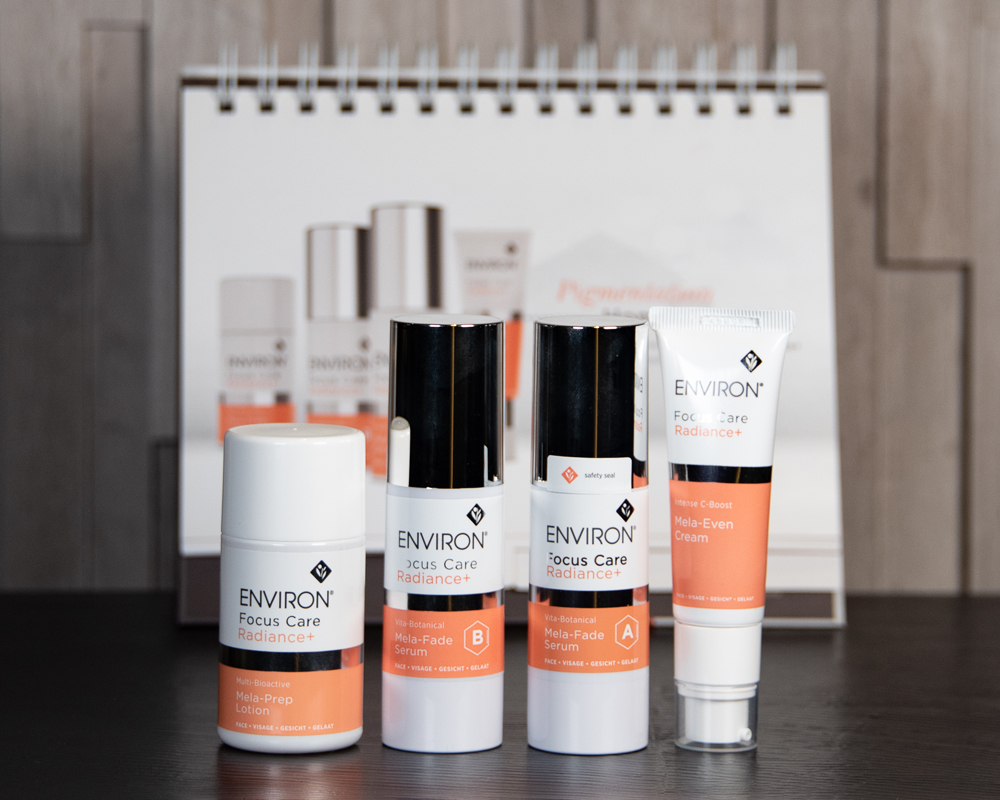Understanding the Difference Between Medical Grade and Over-the-Counter Products.
Walking down the skincare aisle at your local beauty store can be an overwhelming experience. With countless options vying for your attention, it can be difficult to know which products are truly effective and worth your investment. One key distinction to understand is the difference between medical grade skincare products and over-the-counter (OTC) products. While both types can contribute to healthier skin, medical grade products, like Environ, offer unique benefits that may be worth exploring. In this blog post, we will demystify the skincare aisle and help you understand the differences between medical grade and OTC products, so you can make informed choices for your skincare routine.
What is the difference between medical grade and over-the-counter skincare products?
When choosing skincare, it’s important to understand the key differences between medical grade and OTC skincare products. While both types of products can contribute to healthier skin, they have distinct characteristics that set them apart.
Medical grade skincare products are formulated with higher concentrations of active ingredients compared to OTC products. These active ingredients are often backed by scientific research and are intended to treat specific skin concerns such as acne, hyperpigmentation, or fine lines and wrinkles. Medical grade products are typically found in medical clinics, dermatology offices, or medical spas, and may require a prescription or a consultation from a licensed professional.
On the other hand, OTC skincare products are widely available in retail stores, drugstores, and online without a prescription. These products are formulated with lower concentrations of active ingredients and are generally considered milder and safer for everyday use. OTC products focus more on general skincare maintenance and prevention, providing basic hydration, cleansing, and sun protection.
The regulatory requirements for medical grade and OTC skincare products also differ. Medical grade products are subject to stringent regulations and must undergo rigorous testing and clinical trials to ensure their safety and efficacy. They are often produced in smaller batches and may have a higher price point compared to OTC products. OTC skincare products, on the other hand, are regulated by government agencies such as the Food and Drug Administration (FDA) in the United States. While they still need to meet certain standards, the regulations are generally less stringent compared to medical grade products.
The benefits of medical grade skincare products.
Medical grade skincare products offer several benefits that set them apart from OTC products. Here are a few:
1. Enhanced efficacy: Medical grade skincare products contain higher concentrations of active ingredients, such as retinoids, vitamin C, and alpha hydroxy acid. These ingredients have been scientifically proven to address specific skin concerns, such as wrinkles, hyperpigmentation, and acne. The increased potency of medical grade products allows for more noticeable and faster results compared to OTC products.
2. Targeted treatment: Medical grade products are formulated to target the underlying causes of skin issues rather than just surface symptoms. They penetrate deeper into the skin, addressing concerns at a cellular level. This targeted approach helps to achieve long-lasting and more comprehensive results.
3. Professional recommendation: Medical grade skincare products are typically recommended by skincare professionals, such as dermatologists or aestheticians. These professionals have a deep understanding of the ingredients and formulations, allowing them to tailor a skincare regimen specifically to your skin type and concerns. Their expertise ensures that you are using the most appropriate products for your skin’s needs.
4. Quality assurance: Medical grade skincare products undergo rigorous testing and clinical trials to ensure their safety and efficacy. They are produced in smaller batches, ensuring quality control and consistency. In contrast, OTC products have more lenient regulations and may not undergo the same level of testing and scrutiny.
5. Customization options: Medical grade skincare products often offer more customization options. This means that professionals can create personalized formulations by adjusting the concentration and combination of active ingredients to suit individual skin concerns. Customized products provide a more tailored approach, maximizing the benefits for each individual.
6. Professional guidance and support: When using medical grade skincare products, you have access to professional guidance and support. Skincare professionals can monitor your progress, make necessary adjustments to your regimen, and provide additional treatments or procedures to enhance your results. This personalized approach ensures that you are receiving the best possible care for your skin.
How to determine if a product is medical grade or over-the-counter.
Determining whether a skincare product is medical grade or OTC can be confusing, as products may not always clearly state their classification. However, there are a few key factors to consider when determining the classification of a skincare product:
1. Ingredients: Medical grade skincare products often contain higher concentrations of active ingredients compared to OTC products. These active ingredients may include peptides, retinoids (such as retinol or prescription-strength retinoids), growth factors, and antioxidants. Medical grade products are formulated to deliver more potent and targeted results, addressing specific skin concerns at a deeper level.
2. Packaging: Medical grade skincare products are typically sold in medical clinics, dermatology offices, or through authorized licensed professionals. They often come in airless pumps, dark or opaque bottles, or other packaging designed to protect the product’s stability and efficacy. OTC products, on the other hand, are more commonly found on store shelves with simpler packaging.
3. Claims and marketing: Medical grade skincare products are formulated and marketed to provide specific clinical benefits and results. Their claims often focus on improving the skin’s texture, reducing the appearance of fine lines and wrinkles, or targeting specific skin conditions. OTC products tend to have more general claims and may focus on basic skincare maintenance or temporary improvements in appearance.
4. Cost: Medical grade skincare products are generally more expensive compared to OTC products. The higher cost reflects the quality and efficacy of the ingredients used, as well as the research and development behind the product. OTC products, on the other hand, are more affordable and accessible for everyday skincare needs.
It is important to note that some skincare brands may blur the line between medical grade and OTC products by making ingredients such as retinol available in lower concentrations without a prescription. In these cases, it is important to carefully read the product labels and consult with a skincare professional if you are unsure about the classification.
Making informed choices for your skincare routine.
Understanding the difference between medical-grade and over-the-counter skincare products is essential for making informed choices for your skincare routine. Professional guidance from skincare experts or dermatologists is crucial in ensuring that you address your skin’s specific needs and achieve optimal results.
A personalized approach to skincare is key, as everyone’s skin is unique. Skincare professionals assess your skin’s condition, lifestyle, and habits to customize a skincare regimen that suits your needs. They may recommend specific products, treatments, or lifestyle changes to address your unique concerns and achieve the best possible results.
If you are seeking more targeted and intensive skincare treatments, or if you have specific skin concerns or conditions, call Healthy Complexions Spa at (716)300-1444 to ask about our Environ Skin Care line, or to schedule a consultation with one of our licensed aesthetic specialists today.

